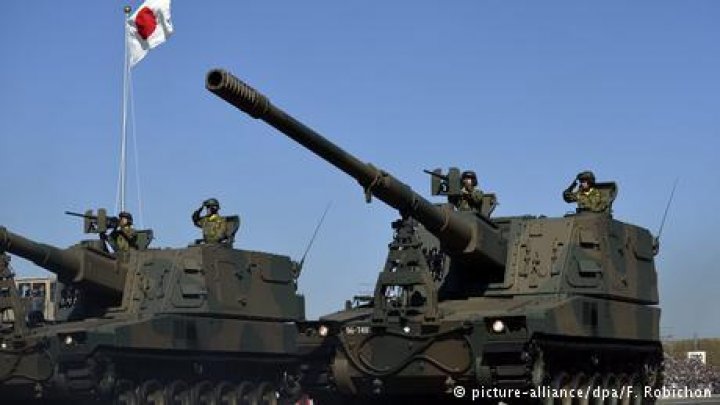Taiwan bolsters domestic defence industry in face of threats from China
 foto: publika.md
foto: publika.md
Taiwan is seeking to build-up its domestic defence industry in the face of China's threats and the reluctance of foreign arms suppliers to provide it with planes, ships, submarines and other hardware to defend its 23 million people.
The US is legally bound to respond to threats to Taiwan and continues to be its main arms supplier.
However Taiwan is increasingly looking to replace those politically fraught, touch-and-go deals with domestic production that is reliable as well as technologically advanced.
The self-reliance policy has been strongly promoted by pro-independence President Tsai Ing-wen, whose government was shunned by Beijing shortly after she took office more than two years ago.
Defence is included in Tsai's economic programme targeting eight industries for innovation and job creation, with the government helping match its defence needs with the abilities of Taiwanese companies.
Beijing has been upping pressure on the island by cutting its already tenuous diplomatic links and has sent military planes and an aircraft carrier close to the island multiple times.
China now has the world's second largest defence budget behind the US, significantly boosting its ability to blockade, attack and possibly invade Taiwan.
Taiwan's domestic arms industry started in the 1970s, more than two decades after Chiang Kai-shek's Nationalist forces fled to the former Japanese colony when Mao Zedong's Communists seized power on the mainland in 1949.
Beijing suspended exchanges with the US military after a 6.4 billion US dollar arms package for Taiwan was announced in 2010.
US sales are also constrained by concerns about the leaking of sensitive advanced technology across the 160 kilometre (100 mile)-wide Taiwan Strait to China.
Despite that, such sales continue, with the Trump administration last year notifying Congress of its intent to approve seven proposed deals for technical support, anti-radiation missiles, torpedoes and other technology valued at around 1.42 billion US dollars.
And last month, the administration agreed to allow US firms with the technology to build much-needed diesel-electric submarines.
The navy today operates just two aging subs bought from the Netherlands in the 1980s.
Along with fighter jets and other aircraft, Taiwanese contractors already make anti-ship, surface-to-air and air-to-air missiles, as well as missile boats and the Clouded Leopard armoured vehicles.
Taiwan has long been known worldwide for its civilian high-tech industry and about 200 small and mid-sized companies work in defence.
AIDC and the National Chung-shan Institute of Science and Technology are among the larger contractors.
The aerospace firm reported sales income of 235 million US dollars and a net profit in the third quarter of 2017, the most recent made public online.
Despite the advances, Taiwan will never be able to quit buying advanced weapons from other countries.
Propulsion systems and engines for ships and aircraft are a particular need, and Taiwan sometimes finds that imports cost less than local production.
Yet such sales carry the risk of being used as bargaining chips to gain concessions from Beijing, particularly on trade.
Ultimately, officials in Washington might help Taiwan's military again only if they see its capability decline, said Alexander Huang, strategic studies professor at Tamkang University in Taiwan.
"Taiwan worries that there might be a time that we can't buy the weapon system that we wanted. So we better build up our indigenous defence industry capability," Huang said.
Meanwhile, more than 300 representatives from major global weapons systems suppliers, including Lockheed Martin, Raytheon Co. and British Aerospace attended the Taiwan-US Defence Business Forum held in Kaohsiung recently.
They described it as helpful in facilitating future opportunities for co-operation.
Francis J. Wiercinski, a retired former commander of the US Army in the Pacific and current senior vice president and managing director of US company Cubic Corporation said he was happy to participate in the event to build up good relationship with partners in Taiwan.